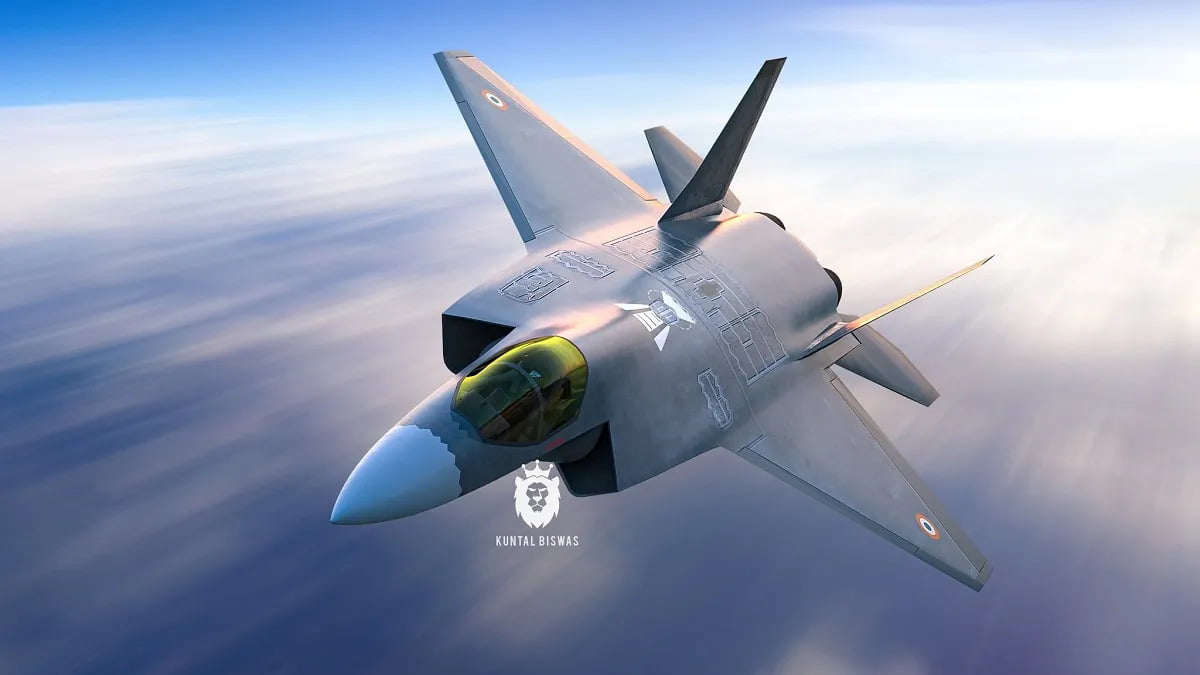According to Twitter handle Alpha Defense, HAL Nasik has been identified as the primary partner for producing AMCA Parts and Assemblies. The proverbial’metal cutting’ for the first prototype of India’s futuristic fighter jet, the Advanced Medium Combat Aircraft (AMCA), was announced by the Defence Research and Development Organisation (DRDO) in March 2022.
“The manufacture of the Leading Edge of AMCA began at HAL with specific material for the 5th gen design, based on the design of ADA and DRDO. Before being installed on the first prototype, the unit will be subjected to structural and other tests. In a late-night Tweet on March 9, the DRDO proclaimed, “An critical milestone for AMCA.”
This is a significant milestone in India’s most ambitious indigenous weapons programme, the creation of a 5.5 Generation fighter aircraft that would be the backbone of the Indian Air Force’s (IAF) combat strength for decades to come.
The Aeronautical Development Agency of the DRDO intends to construct five AMCA prototypes for development and flight testing. The maiden flight is scheduled for 2024-25, with series production beginning in 2030, while the development agency believes that after four years of flight testing, the period can be shortened to 2028-29.
AMCA is a 20-ton stealth fighter featuring supercruise, or the ability to fly supersonic without using jet engine afterburners, which reduces radar detection and makes the plane harder to target.
Despite the initial milestone, the AMCA’s Critical Design Review (CDR) is still waiting. This is set to happen later this year. The first prototype is expected to be released in 2023-24. After the Preliminary Design Review (PDR) in December 2020, the jet’s configuration was frozen.
The government has given its clearance for the establishment of a Special Purpose Vehicle (SPV) for the fabrication of prototypes and subsequent serial production of the aircraft, according to Director ADA Dr Girish Deodhare. This SPV will consist of both governmental and private sector enterprises.
The Indian Air Force is said to have ordered 40 AMCA MK-1 fighters and at least 100 MK-2 derivatives, as well as some unmanned variants. While the MK-1 would be driven by GE-414 engines rated at 98 kN, the MK-2 will be powered by 110 kN engines built by India in collaboration with a foreign manufacturer. The Mk-1 type will be delivered in 2030, while the Mk-2 will be delivered in 2035.
One-and-a-half tonnes of armament will be stowed in internal weapon bays on the 20-ton fighter. The aircraft can carry six and a half tonnes of weaponry, targeting and observation pods, as well as fuel tanks on external pylons under the wings and fuselage in non-stealth mode.
HAL’s Nasik division will manufacture the majority of the main and sub-assemblies for the AMCA programme.
